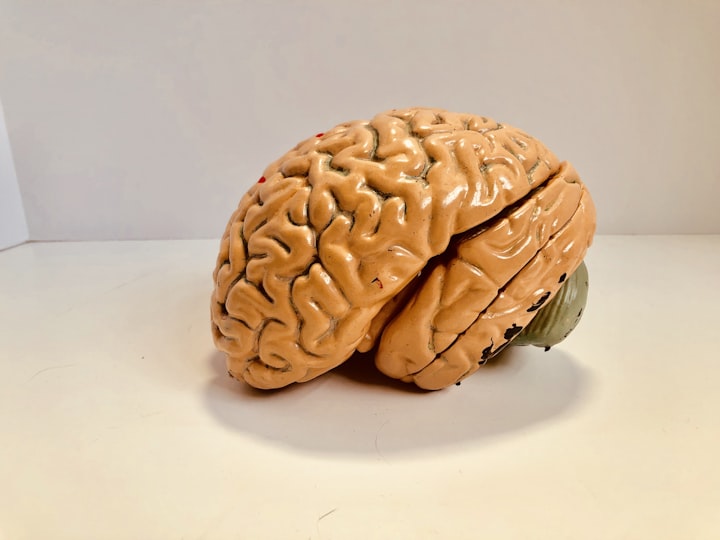How Isolating the Country Affects Your Brain
During a Pandemic

INTRO:
The Covid-19 pandemic has caused a variety of changes to our lives, including the way we think and feel. Isolating an entire country can have some serious impacts on our mental health, with the emergence of a phenomenon known as 'pandemic brain'. In this blog post, we'll look at the five biggest consequences that isolating the country has had on our minds during this pandemic.
1) The first consequence is an increase in anxiety and depression
The Effects of Isolation during The Pandemic can take a serious toll on our mental health. The 6 Biggest Consequences on the Brain are starting to become more evident as time goes on, with an increase in anxiety and depression being the first consequence that many people are experiencing.
The current situation has disrupted our daily lives in many ways, with lock downs, social distancing and a lack of physical contact all contributing factors to this increase in anxiety and depression. When we are isolated from our friends and family, it is natural for us to feel lonely, and these feelings can quickly turn into something much more serious if not addressed properly.
Unfortunately, the current situation is one that we have little control over, and this lack of control can often exacerbate feelings of anxiety and depression. With no clear end in sight to the pandemic, it is understandable that many people are struggling with their mental health.
It is essential to recognize the symptoms of anxiety and depression and take steps to address them. There are many resources available online or through healthcare professionals that can provide support and guidance on how to manage these symptoms effectively. Taking the time to care for our mental health is crucial during these uncertain times, and seeking help should not be seen as a sign of weakness, but rather a sign of strength.
2) The second consequence is a decrease in productivity
One of the effects of isolation during the pandemic is a decrease in productivity. Working from home or being stuck indoors all day can make it difficult to stay motivated and focused. The lack of structure and routine can lead to procrastination and distraction.
Studies have shown that isolation can have a negative impact on our ability to concentrate and complete tasks efficiently. The constant news updates and uncertainty of the pandemic can also add to feelings of stress and anxiety, further reducing productivity.
In addition, the absence of social interactions and physical activity can lead to a decline in overall well-being, which can also impact productivity. When our physical and mental health suffer, we are less likely to perform at our best.
It's important to take steps to combat these negative effects of isolation. Setting a daily routine and sticking to a schedule can help create structure and improve productivity. Taking regular breaks to stretch or go for a walk can also help to refresh the mind and increase focus.
Connecting with others through virtual means or in-person, when possible, can also provide a sense of social connection and reduce feelings of isolation. By prioritizing our physical and mental health, we can better combat the effects of isolation on our productivity and overall well-being during the pandemic.
3) The third consequence is an increase in negative emotions
The effects of isolating the country during a pandemic go far beyond just physical health concerns. In fact, the impact on mental health is often overlooked, despite it being just as important as physical health. In this article, we're discussing the 6 biggest consequences on the brain caused by the pandemic-induced isolation, and the third one is an increase in negative emotions.
When we're cut off from our usual social connections, it's normal to feel a sense of loneliness and isolation. As human beings, we thrive on social connections and interactions, and without them, negative emotions like sadness, anger, and frustration can start to take hold.
What's more, the constant barrage of news about the pandemic can also contribute to negative emotions. News outlets tend to focus on the most dramatic and tragic stories, which can amplify our feelings of despair and anxiety.
All of these negative emotions can have a significant impact on our mental and physical health. For instance, high levels of stress and anxiety can lead to physical symptoms such as headaches, muscle tension, and fatigue. Additionally, negative emotions can take a toll on our relationships with loved ones, leading to a cycle of even more isolation and negative emotions.
Overall, the increase in negative emotions caused by the pandemic-induced isolation is a major concern for mental health experts. If you're feeling overwhelmed by negative emotions, it's important to seek support from friends, family, or a mental health professional. Taking care of your mental health is crucial during these difficult times.
4) The fourth consequence is a decrease in cognitive function
As we continue to isolate ourselves and limit our interactions with others, we may start to notice a decrease in our cognitive function. This is one of the biggest consequences that isolation can have on our brain.
Cognitive function includes our ability to think, reason, learn, and remember information. When we are isolated, we are not getting the mental stimulation that we need to keep our cognitive function at its best.
This can result in forgetfulness, difficulty concentrating, and slower processing speed. It can also make it harder to learn new things or adapt to new situations. We may find ourselves struggling to complete tasks that would normally be easy for us, or feeling like our thinking is foggy and unclear.
This decrease in cognitive function can have long-lasting effects on our overall mental health and well-being. It can make it harder to stay motivated and engaged in our daily lives, which can lead to feelings of hopelessness and helplessness.
To combat this, it's important to find ways to keep our brains active and engaged, even while we are isolated. This can include things like reading, playing games, or learning new skills online. It's also important to stay connected with others, as social interaction can help keep our brains sharp and healthy.
Overall, the decrease in cognitive function is just one of the many consequences that isolation can have on our brain. By staying aware of these consequences and taking steps to mitigate them, we can help protect our mental health and well-being during these challenging times.
5) The fifth consequence is an increase in risk-taking behavior
The isolation that comes with a pandemic can cause many significant consequences on the brain. As previously discussed, anxiety and depression, decreased productivity, increased negative emotions, and decreased cognitive function are among the biggest consequences. However, one other crucial effect that often goes unnoticed is the increase in risk-taking behavior.
Being isolated for a long period can cause people to lose touch with reality and start engaging in activities that could be considered risky. People may start drinking excessively or using drugs to deal with stress and anxiety. They may also engage in unprotected sex or participate in other dangerous activities, leading to significant consequences.
In some cases, risk-taking behavior could even be deadly, particularly when people disregard safety protocols such as social distancing or mask-wearing. The consequences of such behavior could not only be detrimental to individuals but could also have far-reaching impacts on the society at large.
Moreover, risk-taking behavior often comes as a result of the feeling of uncertainty and lack of control over the situation. The pandemic has brought a sense of unpredictability, leading to a natural inclination to take risks to reclaim some sense of control. Therefore, the need for individuals to feel a sense of control during the pandemic is crucial to mitigate the consequences of risk-taking behavior.
Learn How To Control The Brain Pandemic Click Here






Comments
There are no comments for this story
Be the first to respond and start the conversation.